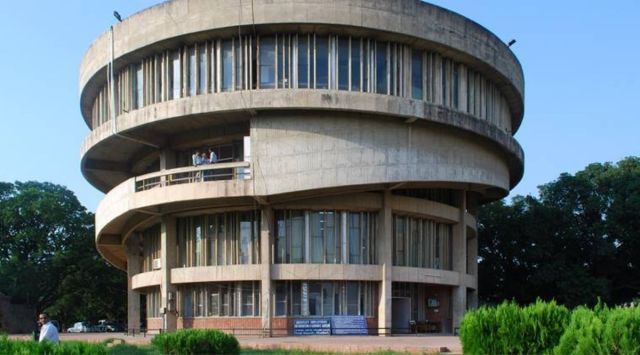Divya Goyal is a Principal Correspondent with The Indian Express, based in Punjab. Her interest lies in exploring both news and feature stories, with an effort to reflect human interest at the heart of each piece. She writes on gender issues, education, politics, Sikh diaspora, heritage, the Partition among other subjects. She has also extensively covered issues of minority communities in Pakistan and Afghanistan. She also explores the legacy of India's partition and distinct stories from both West and East Punjab. She is a gold medalist from the Indian Institute of Mass Communication (IIMC), Delhi, the most revered government institute for media studies in India, from where she pursued English Journalism (Print). Her research work on “Role of micro-blogging platform Twitter in content generation in newspapers” had won accolades at IIMC. She had started her career in print journalism with Hindustan Times before switching to The Indian Express in 2012. Her investigative report in 2019 on gender disparity while treating women drug addicts in Punjab won her the Laadli Media Award for Gender Sensitivity in 2020. She won another Laadli for her ground report on the struggle of two girls who ride a boat to reach their school in the border village of Punjab. ... Read More
QS World University Rankings 2023: Panjab University ranks in lowest bracket; among bottom 4 from India
For the first time, Panjab University fell to the 1,201-1,400 bracket, in the ranking. It was in the 1,001-1,200 bracket in last year's QS World University Rankings.
 PU Chandigarh is one of the four institutes from the country that figured in the lowest bracket (1,201-1,400)
PU Chandigarh is one of the four institutes from the country that figured in the lowest bracket (1,201-1,400)In an unprecedented poor performance, Panjab University (PU) Chandigarh, has been placed in the lowest bracket (1,201-1,400) in the QS World University Rankings 2023, released on Wednesday.
The low rank indicates that it is among the worst-performing universities out of a total of 1,400 higher education institutes that were assessed worldwide for this year’s rankings, based on parameters such as academic reputation, employer reputation, faculty-student ratio, international research network and employment outcomes.
From India, 41 educational institutes were featured in the list, and the Indian Institute of Science (IISc), Bengaluru, topped the country with a global ranking of 155. PU Chandigarh is one of the four institutes from the country that figured in the lowest bracket (1,201-1,400). The other three are Jamia Hamdard University, Delhi; Osmania University, Hyderabad and SRM Institute of Science and Technology, Tamil Nadu.
PU Chandigarh, a state university under the Punjab government, has even performed the worst in the region (Punjab, Haryana, Himachal Pradesh and Union territory Chandigarh) and four private universities have ranked higher than it. The universities which ranked higher than PU in the region are: OP Jindal Global University, Sonipat, Haryana (651-700), Chandigarh University, Mohali (801-1,000); Shoolini University of Biotechnology and Management Sciences, Solan, Himachal Pradesh (801-1,000); and Thapar Institute of Engineering and Technology, Patiala (1,001-2,000).
Meanwhile, OP Jindal Global University improved its ranking, moving from the 701-750 bracket last year to 651-700 this year. Thapar University Patiala maintained its rank at 1,001-2,000 like last year. Shoolini University and Chandigarh University are the new entrants to the list, with the latter being among the youngest of the new entries, having been established less than ten years ago.
PU’s unprecedented downfall in the QS World Rankings can be gauged from the fact that the downslide started in 2017 and each year it just got worse. It ranked 701+ in 2016 and 2017, then 801-1000 in 2018, then 1001+ in 2021 and it slipped to 1001-1200 in 2022. The varsity, however, has managed to maintain its Asia rank at 301-350, the same as last year but that too has gradually declined from 171-180 in 2014, 291-300 in 2020 to 301-350 now, indicating that PU is not among the top 300 higher educational institutes in Asia, as per the rankings.
Mritunjay Kumar, president, PU Teachers Association (PUTA), said that he was yet to check the detailed report but said the university administration should look into it and introspect. “We are not inferior to any private university in the region so the administration needs to introspect that where the things went wrong in these rankings. We should aim to improve and achieve the ranking which justifies the reputation that PU has,” he said.
Photos



- 01
- 02
- 03
- 04
- 05





























